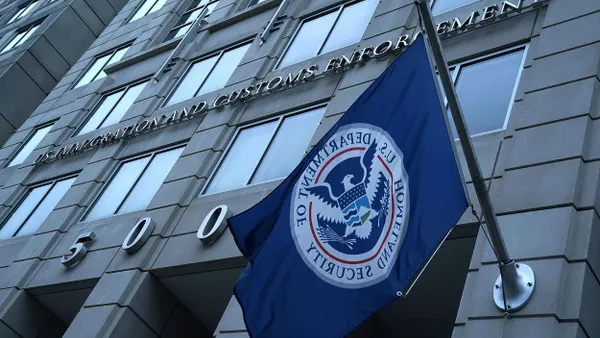This feature is a part of “The Dotted Line” series, which takes an in-depth look at the complex legal landscape of the construction industry. To view the entire series, click here
There’s a saying when it comes to making hit movies in Hollywood: No one knows anything.
While Tinseltown is pretty far afield from construction, attorneys in the building space are now borrowing that underlying sentiment when approaching diversity, equity and inclusion.
“I’ve got to be honest with you,” said Jason Tremblay, a partner and labor and employment practice vice chair in the Chicago office of law firm Saul Ewing, “anybody who says they know 100% what they’re talking about in this area, they don’t. You just don’t know what’s going to happen or how it’s going to evolve.”

This is especially true when navigating DEI in 2025, given the stance of President Donald Trump’s administration to root out what it refers to as “illegal DEI” in federal agencies as well as the private sector.
Soon after taking office, Trump issued a raft of executive orders directing federal agencies to stop promoting diversity while requiring federal contractors to certify they aren’t running illegal DEI programs or engaging in other workforce balancing efforts.
Those changes are particularly relevant in construction, an industry that has proactively tried to shed its White-guys-only image. For example, the sector’s Construction Inclusion Week is aimed at bringing more workers into its labor force, with an emphasis on diversity. It is set for its fifth running this October.
But attorneys say this area is now rife with potential issues for builders. Federal contractors that certify they aren’t running illegal DEI programs could face stiff False Claims Act penalties — up to three times a contract’s value — if they are in fact doing so, according to Andrew Turnbull, an attorney in the Washington, D.C., office of Morrison Foerster who co-chairs the firm’s DEI Strategy + Defense Task Force.

“Every time that you're submitting a payment, there can be damages related there,” Turnbull said. “They have a big sledgehammer.”
And though DEI requirements have been struck from federal contracts, many still exist at the state level. That means a contractor trying to satisfy one client may run afoul of another.
“Some of these things are going to be red flag issues,” said Turnbull. “You’ve got a real risk here.”
Against that backdrop, attorneys recommend that firms conduct DEI audits. This level-setting process can help companies understand what policies they have in place and where they might conflict with the new rules. They should also apply a business lens to the undertaking.

“The first thing you want to do is take a look at your book of business,” said Trent Cotney, a partner and construction team leader in the Tampa office of law firm Adams & Reese. “Clearly if you're a larger, national contractor or doing public work, federal work, there's probably additional scrutiny there.”
What to look for
With the exception of veterans and disabled persons, Trump’s illegal DEI orders specifically target affirmative action-type programs. That means efforts where quotas or goals are set using specific, protected-class characteristics for inclusion, such as gender or race.
“It’s programs that look for what’s known as workforce balancing,” said Cotney. “It’s taking criteria, typically race or sexual preference or any protected classes and looking to hire specifically to check boxes or make sure you’ve got more of those individuals, regardless of performance-based criteria.”
Other types of educational, cultural or historical initiatives, such as celebrating Black History Month, are likely not an issue. Yet additional efforts, including recruiting from historically Black colleges and universities, if done exclusively, could draw the administration’s ire.
“The more that it is determined that you are only dedicating your recruitment efforts toward historically Black colleges, the more you’d be increasing your chances under this administration that you are implementing an unlawful, non-merit-based DEI program,” said Tremblay.
Instead, he suggested that if, for instance, companies recruit from Howard University, which is historically Black, they should also roll out a program at Georgetown University, which is not. Doing so could provide more of a legal shield.
Contract review
From a contract standpoint, lawyers recommend reviewing whatever agreements you might already have that include DEI language — especially those based on standard industry form contracts.
“Some primes will flow this down to their subs who just have kind of their form contracts,” said Turnbull. “They need to review those and make sure these things are all struck out.”
When signing on to a state-level contract that may still contain DEI language or even workforce requirements, be sure to know what you’re signing.
“We get a lot of questions about, ‘I can’t do it in the federal context, but at the state level, there’s still an obligation,’” said Turnbull. “There’s not a clear answer on that, but technically, if your state contract requires it, that is still good law at this point in time. At the very least, those are things to look at.”
For Cotney, contractors should seek to put any conflicting requirements back on the owner or job sponsor requesting they be in place.
“If there’s anything questionable, I’d put in a statement that says the owner or whoever is providing me with this contract has determined that it is compliant with all federal rules and regulations,” said Cotney. “Shift the burden, to the extent possible, upstream.”
Deciding a path forward
Once you’ve completed an audit — which, when conducted under the direction of legal counsel, will be protected by attorney-client privilege — companies should determine a path forward from there.
“I have companies I represent who have welcomed this, and have scrapped any mention of any type of affirmative action,” said Tremblay. “I have others who have dug in their heels and said, ‘Absolutely not. We’re going to stay the course and keep our programs. If they come at us, we’ll deal with it.’”
Most clients, though, have taken a more evaluative approach, determining which programs they can continue to implement while reducing the chance of triggering an audit.
The reason why is because it’s not only the government that is looking at these programs — employees do, too. Attorneys say contractors who discard DEI wholesale not only risk alienating the employees they have — while triggering potential discrimination claims from within — they put themselves at a disadvantage for bringing new talent into their workforce.
“The one message I want to send is don’t abandon your diversity policies just because of this focus on illegal DEI,” said Cotney. “You should still have a good anti-harassment policy and encourage diversity. It brings a significant amount to the table both internally, and in changing your overall viewpoint. Diversity is a great thing.”














